Autodesk INVENTOR 2010 - Datasheet
- Category
- Warranty & support extensions
- Type
- Datasheet

Shorten the road
to done.
Autodesk
®
Inventor
Routed Systems
Autodesk
®
Inventor
TM
Suite

2
Autodesk
®
Inventor
™
software provides a comprehensive set
of design tools for producing, validating, and documenting
complete digital prototypes—helping manufacturers get
to market faster with fewer physical prototypes and more
innovative products.
Experience your design before it’s built.
The Autodesk Inventor product family is redefining
traditional CAD workflows by helping engineers
focus on the functional requirements of a design
to drive the creation of complex D geometry.
Reducing the time spent on geometry allows
engineers to spend more time innovating designs.
By rapidly building digital prototypes that validate
a design’s function, engineers can catch errors
before they reach production. With creative
approaches to accelerate and simplify the concept-
to-manufacturing process, Inventor has outsold all
competitors for the seventh consecutive year.
The Right Tools for Your Design Process
Inventor helps designers to realize the benefits of
Digital Prototyping by giving them the freedom
to reuse their existing DWG™ designs in a D
design environment. Inventor lets users read and
write native DWG files without risking inaccurate
translations, and leverage valuable DWG data
to build accurate D part models the first time.
Inventor includes tools to easily create and
document D designs, and provides unparalleled
interoperability with competitive manufacturing
applications—simplifying collaboration with other
companies.
Contents
AutoCAD Integration ............................... 4
Part Design .................................................. 6
Sheet Metal Part Design ........................... 8
Assembly Design ...................................... 10
Design and Manufacturing
Documentation ......................................... 13
Data Management
and Communication ................................. 15
Customization and Automation ............ 18
Learning Resources .................................. 19
Learn More ................................................ 20

3
Specialized Tools for Your Design Needs
The Autodesk Inventor product line provides a
comprehensive and integrated set of design tools
for producing and documenting complete digital
prototypes that validate the form, fit, and function
of a design. The Inventor model is an accurate D
digital prototype that enables users to check design
and engineering data as they work, minimize the
need for physical prototypes, and reduce costly
engineering changes discovered after the design has
been sent to manufacturing.
Autodesk Inventor software products combine an
intuitive D design environment for creating parts
and assemblies with functional design tools that
enable engineers to focus on a design’s function
to drive the automatic creation of intelligent
components such as steel frames, rotating
machinery, tube and pipe runs, and electrical cable
and wire harnesses.
Validating the operating characteristics of designs
before they are built usually requires hiring
expensive consultants. The Inventor product line
includes easy-to-use and tightly integrated motion
simulation and stress analysis functionality, making
it possible for any engineer to optimize and validate
the digital prototype to predict how the design
will work under real-world conditions, before the
product or part is ever built.
Generating manufacturing documentation from a
validated D digital prototype helps reduce errors
and associated ECOs (engineering change orders)
before manufacturing. Inventor oers rapid and ac-
curate output of production-ready drawings directly
from the D model. Inventor product bundles also
include AutoCAD
®
Mechanical software for situa-
tions that require a high-productivity D mechanical
drafting tool.
Inventor is tightly integrated with Autodesk
data management applications, enabling the
ecient and secure exchange of design data and
promoting earlier collaboration between design and
manufacturing workgroups. Dierent workgroups
can manage and track all components of a digital
prototype with the free* Autodesk
®
Design Review
software—the all-digital way to review, measure,
mark up, and track changes to designs—allowing
for better reuse of crucial design data, management
of bills of materials (BOMs), and collaboration with
other teams and partners.
With dierent product configurations that oer
specific levels of functionality, no company is
more focused than Autodesk on helping designers
create accurate digital prototypes and bring better
products to market faster at less cost.

4
Autodesk
®
Inventor
™
Suite makes it easy for users of
AutoCAD
®
software to realize the benefits of Digital
Prototyping by leveraging investments in AutoCAD
expertise and DWG
™
design data.
AutoCAD Integration
Template Synchronization
Open a DWG file in Inventor and automatically
create layers and dimension and text styles based
on the AutoCAD styles in the DWG file, thus
reducing the time required to create drawings that
comply with customers’ drawing standards.
Ease of Use
Reduce the time and training required for AutoCAD
users to become proficient in D design workflows.
Simplify the transition from AutoCAD software
to Inventor in a familiar design environment with
recognizable icons, AutoCAD-compatible shortcuts,
cursor-based prompts, and command redo. User
profiles enable users to configure Inventor to match
the way they work, with out-of-the-box profiles
for AutoCAD and Inventor experts. In addition,
users can transfer their settings between dierent
computers by exporting the profile to XML.
Inventor delivers the
industry’s leading
integration of D and
D design, providing
direct read and write
of native DWG files,
while maintaining full
associativity to the D
model—without the need
for data-compromising
translators.
With Inventor, reuse
valuable data with
rapid access to existing
D information. And,
because users can save
drawings as DWG files,
they can easily share
insights gained from the
digital prototype with
partners and suppliers
who rely on AutoCAD
software. Views
generated from D part
and assembly designs,
such as schematics and
plant layouts, can also be
combined with AutoCAD
data. Users can then
update D drawings by
inserting a view of new
D designs—reducing the
cost of upgrading existing
equipment.

5
DWG Save
Integrate DWG technology into the D design
workflow to take advantage of existing skills; easily
combine part, assembly, and schematic drawings
data; and streamline communication with suppliers
and partners who rely on DWG technology. This
feature stores Inventor drawing views in the DWG
file to provide view, plot, and measure capabilities
in AutoCAD with complete visual fidelity, while
preserving fully associative drawing updates.
Direct DWG Open
Gain access to existing D design data without install-
ing or learning AutoCAD software. Open AutoCAD
drawings directly in the Inventor application to view,
plot, and measure using familiar Inventor commands.
Incorporate existing D design data into D design
workflows using Copy and Paste commands.
AutoCAD Blocks from Inventor Views
Reduce the cost of using D for upgrade projects
originally designed in D. This feature generates
AutoCAD blocks from Inventor drawing views so
users can redesign subassemblies using Inventor
and then integrate the new drawing views directly
into the original drawings.
Inventor and AutoCAD Mechanical
Interoperability
Accelerate time to market and reduce errors by
enabling associative D and D collaboration.
With this interoperability, AutoCAD Mechanical
software creates drawings of Inventor components
by enabling users to open native Inventor parts and
assemblies. When the design changes in Inventor,
the AutoCAD Mechanical drawing is automatically
updated.

6
Inventor Suite software helps designers reach the next level
of eciency by making it easier to reuse design data, convey
design intent, and work with fully associative models to
make sure any changes to the part design are reflected in the
assembly model and drawing files.
Part Design
Sketching
Evaluate dierent design ideas before creating
detailed part and assembly models. By using the
Inventor sketch environment, designers can quickly
capture design ideas as versatile D layouts. By
combining the power of constraints with easy-to-
use tools for modifying sketches, designers can try
dierent design concepts and control color and line
style to help convey design ideas.
Improve productivity by
automating repetitive
design workflows for
frequently used custom
features and parts. Using
the iPart technology in
Inventor, companies can
easily set up libraries of
intelligent parts to make
sure that frequently used
parts are created the same
way every time.

7
Advanced Shape Description
Create a wide range of complex geometries by easily
combining solids and surfaces. Inventor gives users
precise control of shape characteristics, such as
tangency and continuity. Advanced modeling tools
include Loft to a Point, N-Sided Patch, Sweep Normal
to Surface, Area Loft, Centerline Loft, G2 Continuous
Fillets, Full Round Fillets, and Face-to-Face Fillets.
Surface Quality Analysis
Create models with high-quality surface character-
istics, and check design data for manufacturability
to avoid costly changes during manufacturing setup.
Zebra and Gaussian analysis tools simplify the
process of checking for tangency, continuity, and
curvature.
Draft Angle and Cross Section Analysis
Cross section analysis displays wall thickness, color-
coded feedback of minimum and maximum thickness
violations, and moment of inertia at the end of the
cross section. Draft angle analysis displays color-
coded draft angle based on a pull direction, which
can be defined by an axis, plane, or planar face.
Import from AliasStudio
Use concept design data from Autodesk
®
AliasStudio™ software to reduce the time required
to complete D product design. Incorporate curve
and surface data from AliasStudio into Inventor part
models using DWG import and export tools built
into the two products.
Sculpt Tool
Quickly and easily modify shape details using
surfaces from Inventor or by incorporating imported
surfaces. Construct D part geometry from closed
set surfaces, and incorporate imported surface
data into the model using the Sculpt tool to modify
existing parts by adding or removing material.

8
Autodesk Inventor helps users simplify the design
of complex sheet metal parts.
Sheet Metal Part Design
Sheet Metal Flanges
Quickly design sheet metal parts in D that
accommodate specific manufacturing processes and
shop capabilities. Edge chaining allows creation of
multiple flanges in a single stop, while rich unfold
options and automatic mitering reduce the time
required to define the folded part model.
Sheet Metal Styles
Generate flat patterns that accurately reflect your
manufacturing capabilities. Sheet metal unfolding
is controlled through styles that define the material
thickness, bend rules, and corner reliefs. Both linear
unfolding and custom bend tables can be used to
control the unfolding geometry.
Inventor improves
productivity during the
design of sheet metal
parts by providing a
digital prototype that
combines manufacturing
information (such as
punch tool parameters
and custom bend tables)
with an accurate D
model of sheet metal
folding and a flat pattern
editing environment
where manufacturing
engineers can tweak
flat patterns to optimize
manufacturing costs.

9
Flat Pattern Features
Generate optimized flat patterns to eliminate
unnecessary manufacturing costs. Unfold sheet
metal models to create flat patterns with associative
flat-pattern editing to support cleanup operations
such as modifying corner reliefs to match specific
capabilities available on the shop floor.
Punch Libraries
Users can define their own sheet metal punch
libraries to standardize punch usage and reduce
computer numerical control (CNC) tooling costs.
Table-driven punches enable users to define
families of punches, typically dierent sizes of
the same punch shape with full representation of
manufacturing parameters, including PunchID,
punch depth, and sketches for alternate punch
representations.
Sheet Metal Fasteners
Quickly insert specialized sheet metal fasteners in
the sheet metal design. A comprehensive range of
PEM™ fasteners are included in the Content Center.
DXF Output
Reduce programming time by eliminating time
spent cleaning up DXF™ files for CNC machining.
DXF/DWG export for sheet metal provides control
of preprocessing and postprocessing options such
as DXF/DWG file version, layer mapping, user-
defined chord length for spline simplification, and
customization through external XML files.
Sheet Metal Manufacturing Drawings
Quickly create accurate manufacturing drawings
to support sheet metal manufacturing operations.
Document flat pattern drawings by inserting punch
notes, punch tables, and bend tables that display
punch and bend data from the D mode and select
display of bend directions using drawing styles.

10
Inventor combines Design Accelerators with easy-to-use
assembly tools so users can be sure that every part and
component in an assembly design fits correctly.
Assembly Design
Assembly Design
Quickly assemble individual parts and subassemblies
to define the complete product structure and verify
that the product can be assembled. Insert and
position new components in the assembly using
constraints to capture the positional relationships
that define fixed and moving components.
Accurately validate
interference and mass
properties to produce
high-quality products
the first time around.
Inventor provides the tools
to control and manage
the data created by large
assembly designs so users
can work on just the
components required to
complete a particular part
of the design.

11
Interference Analysis and Contact
Detection
Eliminate costly errors and improve manufacturability
by testing assembly function within Inventor. Check
for both static interference between parts with
graphic highlighting of overlapping material, and
then test for potential collisions between moving
parts by driving assembly constraints or dragging
components until they collide.
AutoLimits
Reduce errors and engineering changes through
automatic monitoring of crucial design parameters.
Use AutoLimits to monitor length, distance, angle,
diameter, loop length, area, volume, and mass.
AutoLimits icons change color when the monitored
parameters exceed the prescribed parameter range.
Assembly Configurations
Easily design and document product families using
assembly configurations to define variations from
a master assembly. Exclude or substitute individual
components and make changes to dimension and
constraint values. Then document the whole part or
assembly configuration using the Table tool, which
automatically creates the parameter table in a D
drawing.
Large Assembly Management
Realize the benefits of D design when developing
very large assemblies. With level of detail (LOD)
representations, users have full control over how
much information to load when working with large
assemblies. Control memory consumption by
suppressing components. A large assembly “capacity
meter” provides a visual indication of how much
memory is available.
Design Accelerators
Move beyond D drafting and D modeling to
rapidly design, analyze, and generate commonly
used machine components from the functional
requirements and specifications such as power,
speed, torque, material properties, working
temperatures, and lubrication conditions. Inventor
software includes Design Accelerators for bolted
connections, shafts, bearings, O-rings, spur gears,
belt and chain drives, pins, and springs.

12
Frame Generator
Quickly design and develop welded frames for
industrial machinery applications. The Frame
Generator builds up structural frames by dropping
predefined steel shapes onto wireframe or solid
skeletal frames and simplifies creation of end
conditions with predefined options for mitered,
notched, and straight butt welded joints. It includes
profile authoring so users can add custom profiles to
the existing library of standard profiles.
Weldments
Improve quality and documentation of welded
assemblies. Define weld preparation, weld creation,
and postweld operations with full D representation
of fillet, gap, or groove welds that provide weldment
analysis and bead volume reports. Automatically
create D annotation based on industry or company
standards, and generate associative D weld symbols
for documentation.
Content Center
The Content Center provides fast and easy access
to frequently used content, simplifying creation,
reuse, and management of all standard company
content. The Content Center is a centralized library
for engineering content that provides an easy-to-use
content browser with search and filter tools to help
users quickly find the right part families. It includes
more than 650,000 components—such as nuts, bolts,
and screws—and enables companies to add in-house
parts and standard features to user-defined libraries.
Supplier Content Center
Reduce the time and eort required to incorporate
standard components into designs. The Supplier
Content Center provides web-based access to
component models from more than 100 leading
manufacturers. The simple-to-use browser provides
quick and easy access to models in native Inventor
format. And it is fully integrated with the Autodesk
Inventor Content Center.
Design Doctor
Use the Design Doctor™ feature to find and fix errors
in D models. This diagnostic tool identifies potential
design issues and recommends corrections.
Assembly Level STL Output
Quickly create source stereolithography (STL) files
directly from the Inventor assembly environment for
rapid prototyping of Inventor assemblies.

13
Design and Manufacturing Documentation
Autodesk Inventor includes comprehensive tools to generate
engineering and manufacturing documentation from the
digital prototype. These tools can help users reduce errors
and deliver designs in less time.
Automatic Drawing Views
Dramatically reduce drawing creation time over
traditional D methods. Automatic drawing views
enable users to
• Call out the views needed on the drawing sheet,
including front, side, ISO, detail, section, and
auxiliary views, and let Inventor project the geom-
etry with comprehensive options for controlling
hidden-line display at the component level
• Retrieve dimension data from the D model to
quickly place the dimensions, including isometric
view dimensions, and let Inventor update the di-
mensions when changes are made to the D model
• Use a comprehensive set of dimension,
annotation, and D symbols for quick and flexible
completion of the drawing set
• Create overlay drawing views that illustrate
various potential states of assemblies
• Access support for technical drawing standards,
including ANSI, BSI, DIN, ESKD, GB, ISO, and JIS
Inventor takes the pro-
duction of manufacturing
documentation to the
next level of productivity
through automatic gen-
eration of drawing views
and tools for finishing
drawings.
And, with support for all
major drawing standards,
full associativity with the
D model (so drawings
update when the design
changes), and output in
the DWG format, Inventor
is the best choice for
creating and sharing DWG
drawings.

14
Automatic Drawing Updates
Reduce errors and the need for manual checking
through automatic drawing update. Inventor
associates drawing views to the original
components so any change made to a part or an
assembly is automatically reflected in the drawing.
Inventor also supports global updates of drawing
resources, such as title blocks, borders, and
sketched symbols.
Bill of Materials
Provide earlier visibility into accurate component
lists to improve costing and sourcing decisions.
Simplify release to manufacturing with accurate
engineering BOM data. The BOM is a single source
for managing the assembly and subassembly
structure of purchased and nonpurchased parts,
including virtual components. Timesaving features
include the following:
• Automatic numbering with support for numeric
and alpha characters, and item number override
• Material definition for virtual components, such
as glue and paint
• Direct editing of materials in the BOM table,
which allows material changes to be made to more
than one item at the same time
Associative Parts List
Automatically generate and update accurate parts
lists in a fraction of the time required by traditional
D methods, virtually eliminating human error.
The associative parts list enables users to maintain
an accurate parts list with part and subassembly
quantities that are automatically kept up-to-date,
organized, and populated into a drawing parts list.
Rapidly add balloons and item numbers to assembly
drawings. And users have greater flexibility in cus-
tomizing parts lists to meet company standards.
Technical Illustrations
Use the presentation environment in Inventor
to quickly create technical illustrations, process
sheets, training materials, part manuals, assembly
instruction sheets, and videos to train assembly
teams on the manufacturing floor.

15
Data Management and Communication
Inventor enables the ecient and secure exchange of design
data to support collaboration between dierent engineering
contributors, including industrial design, product design, and
manufacturing.
Autodesk Vault Integration
Autodesk
®
Vault data management software is a
centralized application for workgroups that securely
stores and manages work-in-progress design data
and related documents. Use it to maximize return
on your company’s investment in design data by
driving design reuse.
Autodesk Productstream
Help ensure that your company’s designs are
complete, accurate, approved, and released to
manufacturing in a timely and eective manner.
Autodesk
®
Productstream
®
software (sold
separately) automates the release management
process by managing engineering changes and
BOMs while the engineering department maintains
control of the design data.
Autodesk Inventor Studio
Improve communication with customers and
other decision makers by creating high-quality
photorealistic renderings and animations in the
Inventor design environment. Autodesk
®
Inventor™
Studio software gives design engineers direct
access to this specialized and typically expensive
functionality. Mirror and turntable animation tools
and a streamlined user interface reduce the time
required to set up and create cyclic animation
sequences.
This capability allows
design workgroups to
manage and track all
the design components
of a digital prototype,
helping designers reuse
crucial design data, man-
age BOMS, and promote
earlier collaboration with
manufacturing teams and
clients.
Through a comprehensive
suite of native translators,
Inventor provides the
interoperability that en-
ables companies to take
on projects in which part
of the D data originates
from other CAD systems
and satisfy customer
requests for D models in
other native formats.

16
DWF Publishing
Improve product quality, decrease time to market,
and reduce scrap and rework costs by using
DWF™ technology to streamline communication
with suppliers, purchasing, and other supply
chain partners. Publish the information required
by manufacturing partners, including assembly
animations and detailed step-by-step assembly
instructions, D drawings, and D models with BOM
information.
Publishing Formats
Share product information with partners and
customers who need to incorporate your designs
into their products. Publish Inventor drawings as
PDF files, publish D part and assembly models in
SAT or JT format, and create STL files for output to
stereolithography and D print machines.
DWF Markup
Easily track, manage, and verify multiple markups
and design changes throughout the design review
process. Overlay DWF markups directly onto
Inventor drawings, provide status, and make
changes. Users can then republish or “round-trip”
those changes back to the design reviewer to
complete the process.
Data Management and Communication

17
AEC Exchange
The AEC (Architecture, Engineering, and
Construction) Exchange tool creates and pub-
lishes simplified D representations, intelligent
connection points, and additional information in
native file formats for AutoCAD
®
MEP software.
Users can also export D geometry to AutoCAD
®
Architecture, Revit
®
-based software, and AutoCAD
software.
Native Translators
Streamline projects that require opening files
from vendors or customers in native formats.
Deliver D design data to customers or vendors
who prefer native file formats. Users can easily
exchange data between Autodesk Inventor, UGS,
®
SolidWorks,
®
and Pro/ENGINEER
®
by importing and
exporting Parasolid,
®
importing UG-NX,™ importing
SolidWorks, importing and exporting Granite, and
importing Pro/ENGINEER directly with Inventor.
STEP/IGES
Simplify accurate collaboration with suppliers and
customers by enabling sharing and reuse of design
data with D CAD/CAM systems. Read and write
design and drawing data using industry-standard
formats.
Construction Environment
Reduce the time required to inspect and repair
customer data files. The Inventor Construction
Environment provides fault-tolerant import of large
STEP and IGES data sets, with a quarantine to hold
entities containing geometric problems such as sur-
face slivers and mismatched boundary curves. The
construction environment also includes a compre-
hensive toolkit for inspecting, editing, and correct-
ing quarantined entities, including solids, surfaces,
wireframes, and points. Data sets can be corrected
and promoted into D part models, surfaces, or D
wireframes.

18
Customization and Automation
Inventor helps users make the most of their investment in D
by using the Inventor API (application programming interface)
to streamline frequently used procedures and automate
specialized workflows that support design standards and
engineering processes.
Styles
Work faster by instantly changing the formatting of
an entire document, while maintaining consistency
with company standards. Styles are combinations
of formatting characteristics such as font, font size,
color, standards, linetype, and material. They are
easily named and stored as templates, and are used
to control all aspects of drawing formats. When
users apply a style, all the formatting instructions in
that style are applied at one time, and a set of com-
mon styles can be configured for use by an entire
project team.
Content Center Publishing Tools
Quickly prepare and publish intelligent part librar-
ies. The publishing tools in the Content Center
include an editing environment and batch process-
ing of large data sets to streamline the process of
preparing and publishing company parts as well as
vendor catalogs.
Task Scheduler
Increase productivity by automating repetitive and
nonproductive tasks. The Inventor Task Scheduler
enables users to schedule single or multiple (batch)
automated tasks including DWF publishing, printing,
file migration, IGES and STEP transfers, and vault
operations. Users can also check out and download
files from the Vault.
Open API
Increase productivity by developing tools to auto-
mate your company’s design and documentation
processes. Inventor includes a well-documented API
to create customized programs to automate special-
ized workflows and extend the Inventor data model
with custom attributes.
Increase speed and pro-
ductivity with configurable
styles so drawings conform
to standards, and publish
custom components in the
Content Center to make
sure that designers use
appropriate components in
their designs.

19
Inventor oers a range of learning and reference resources to
help users maintain skills and quickly make the most of the D
design environment.
Learning Resources
Advanced Help System
Speed the transition to D with contextual help. The
advanced help system is easier to use with improved
navigation and profiles that present users with the
right information based on their user profile.
Tutorials and Skill Builders
Use extended learning modules, including tutorials
with Show Me animations and Skill Builders, to
enhance understanding and skills.
E-Learning
Accelerate learning through flexible access to
tutorials and best practices. A valuable component
of Autodesk
®
Subscription, e-Learning provides a
continually expanding curriculum of short training
exercises.
Deployment Guide
Complete the installation of Inventor with minimum
time and eort. Whether you are planning a new
deployment or upgrading to Autodesk Inventor
2009, this easy-to-read booklet provides the
information you need to succeed.
Engineer’s Handbook
Save time researching engineering formulas,
tables, and standards. The Engineer’s Handbook
provides a comprehensive online reference of
engineering theory, formulas, and algorithms, and
a manufacturing knowledge base that is easily
accessible from anywhere in Inventor.
With Inventor, users can
learn new skills, look
up information about
procedures and tools,
and get the latest tips
and tricks needed to stay
productive.

20
Autodesk Inventor
Suite
Autodesk Inventor
Routed Systems Suite
Autodesk Inventor
Simulation Suite
Autodesk Inventor
Professional
Autodesk Inventor
• • • •
AutoCAD Mechanical
• • • •
Cable and Harness Design
• •
Tube, Pipe, and Flexible
Hose Design
• •
Stress Analysis (FEA)
• •
Dynamic Simulation
• •
Autodesk Vault
• • • •
Learn about the dierent Inventor products available to
fit your specific design needs, and discover why Inventor
products are the best choice for manufacturing companies.
For more information, visit www.autodesk.com/inventor.
Learn More
20
Page is loading ...
-
 1
1
-
 2
2
-
 3
3
-
 4
4
-
 5
5
-
 6
6
-
 7
7
-
 8
8
-
 9
9
-
 10
10
-
 11
11
-
 12
12
-
 13
13
-
 14
14
-
 15
15
-
 16
16
-
 17
17
-
 18
18
-
 19
19
-
 20
20
-
 21
21
Autodesk INVENTOR 2010 - Datasheet
- Category
- Warranty & support extensions
- Type
- Datasheet
Ask a question and I''ll find the answer in the document
Finding information in a document is now easier with AI
Related papers
-
Autodesk 46200-090000-9580?2Y Datasheet
-
Autodesk 46402-091462-9325 User manual
-
Autodesk 52712-141462-9010?NLM User manual
-
Autodesk 46400-290000-9560 User manual
-
Autodesk 462A1-12A711-1005 User manual
-
Autodesk 596C1-09A471-1001 Datasheet
-
Autodesk 206A1-12A411-1011?NLM User manual
-
Autodesk Autocad 2010 User manual
-
Autodesk 46206-121462-9470 User manual
-
Autodesk 18508-181462-8000 Datasheet
Other documents
-
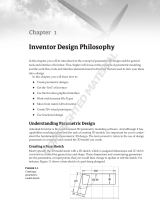 Wiley 978-0-470-88287-0 Datasheet
Wiley 978-0-470-88287-0 Datasheet
-
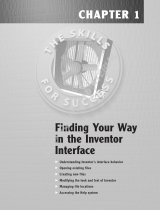 Wiley 978-0-470-48169-1 Datasheet
Wiley 978-0-470-48169-1 Datasheet
-
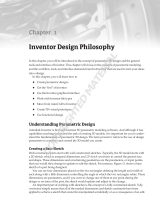 Wiley 978-1-1180-1682-4 Datasheet
Wiley 978-1-1180-1682-4 Datasheet
-
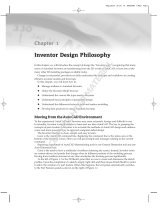 Wiley 978-0-470-29314-0 User manual
Wiley 978-0-470-29314-0 User manual
-
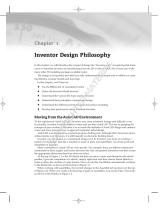 Wiley 978-0-470-47830-1 Datasheet
Wiley 978-0-470-47830-1 Datasheet
-
 Wiley 978-0-470-38440-4 Datasheet
Wiley 978-0-470-38440-4 Datasheet
-
 BackToCAD Print2CAD 2013 2U OCR Specification
BackToCAD Print2CAD 2013 2U OCR Specification
-
 Haworth Bluescape Customer Operating instructions
Haworth Bluescape Customer Operating instructions
-
Ericsson E1 Gateway Router User guide
-
 Wiley 978-1-1180-0276-6 Datasheet
Wiley 978-1-1180-0276-6 Datasheet





























